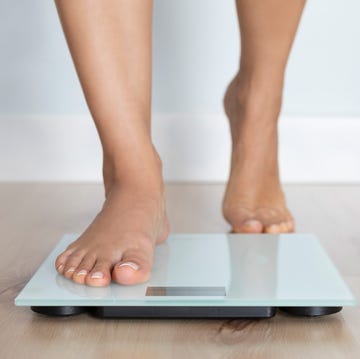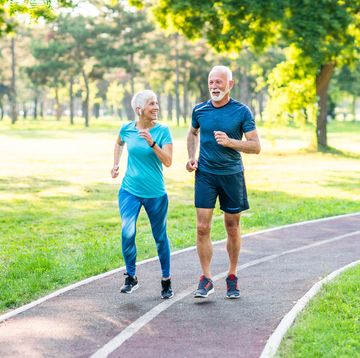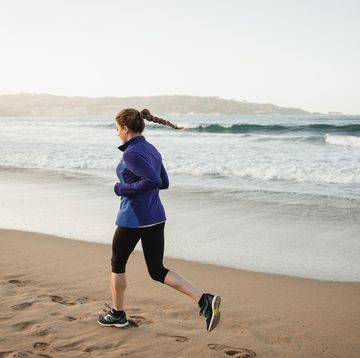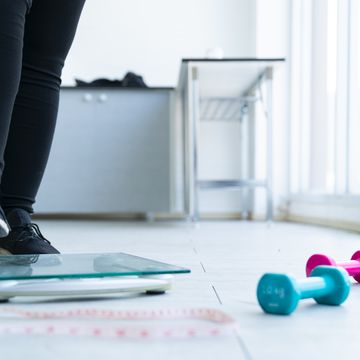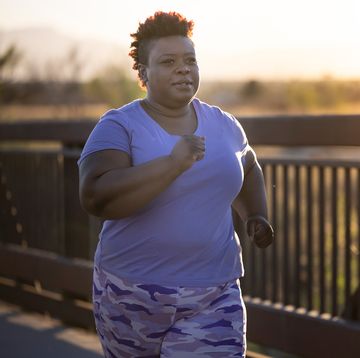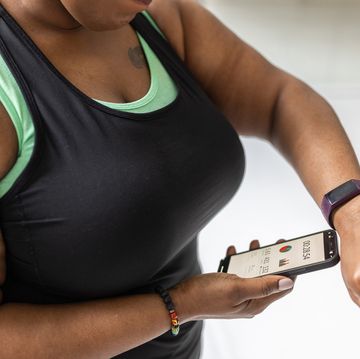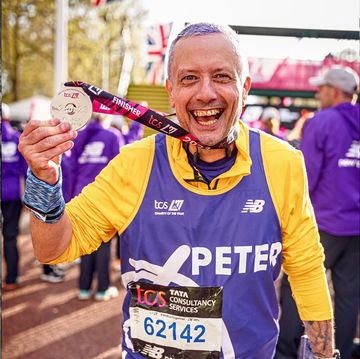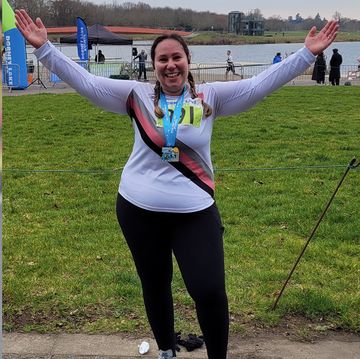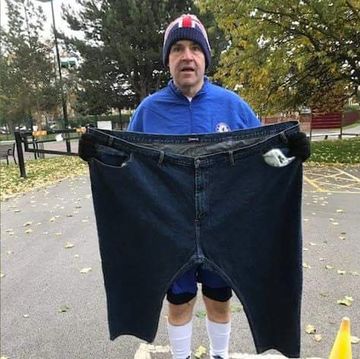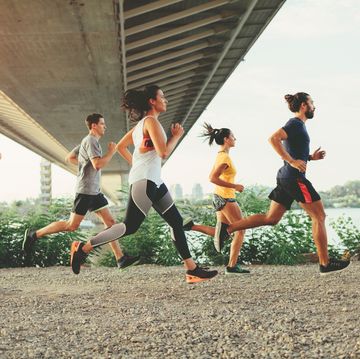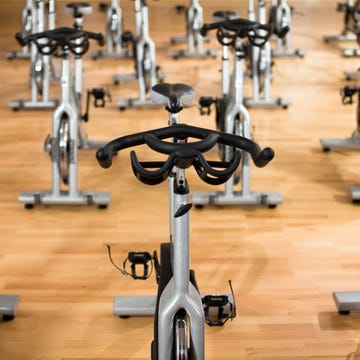Some runners don't worry much about their weight. They think: I run, therefore I can eat a cow for dinner. But these same runners gain 3.3 pounds per decade, according to a recent US analysis of 4,700 mid-life male runners by the National Runners' Health Study. That's not a lot, but it adds up, and the gain affects even those running more than 40 miles a week. The same runners also gained three-quarters of an inch around the waist every decade. I've always monitored my body weight and there are two real reasons to get on the scales every Saturday: I want to find and maintain my healthiest weight, and I also want to determine my fastest weight.
Twenty years ago I read some early studies on body mass index (BMI) and longevity and cringed. People of my BMI – I'm relatively tall and skinny, with a BMI of around 21.0 – were dying at a younger age than others who were a little heavier than me. On a recent visit to California, I visited Dr Bill Haskell, to ask him about the weight and longevity question. He's the director of Stanford University's Prevention Research Center and a man who's been at the epicentre of important health-fitness debates for 30 years. "Those first studies failed to eliminate some people who were thin because they smoked cigarettes or were already diseased," Haskell told me. "The newer studies show no increase in mortality until BMI falls into the mid-eighteens," he said.
The Department of Health recognises the Body Mass Index. The underweight/unhealthy BMI cutoff is 18.5, which indicates malnourishment. If your BMI is 18.5 to 24.9, you're in the normal/healthy weight range. From 25.0 to 29.9, you're overweight, and health risks (such as diabetes, high blood pressure, and heart disease) start climbing. Anyone above a 30.0 BMI gets labelled obese and faces dramatically higher health risks. A 2001 Department of Health study found that 47 per cent of men in England and 33 per cent of women are overweight and an additional 21 per cent of men and 23 per cent of women are obese. Being overweight and obesity increase with age. Visit www.nhlbisupport.com/bmi/bmicalc.htm to find your BMI.
Fat and fit?
While it seems certain that higher body weights are unhealthy, fitness counts, too. Steven Blair, who describes himself as "short, fat, and bald," is one of the top experts in the BMI, exercise, and health field. He and his former colleagues at the Cooper Aerobics Center in Dallas, Texas, have collected the world's most impeccable fitness data; they've actually tested thousands of subjects on a treadmill. Most large studies are based on questionnaires that ask: "How much do you exercise during a typical week?" And you just know a lot of people are wildly optimistic (or lying) when they answer that question.
The Cooper Center studies show that aerobic fitness is a predictor of longevity. Indeed it's often better to be fat but fit rather than lean and out-of-shape. Fitness can trump fatness. Blair, a lifelong runner, believes we focus too much on weight, demonising and demoralising fat people. "I'd like to banish the whole idea of ideal weight," he says. "We simply don't have enough data to say what's right for any individual or group. We should focus more on telling people they can get healthier by becoming more active, no matter what their weight." That's a great message, and one we should all take to our non-exercising, overweight friends. They need every bit of motivation they can get. Still, we should also remember that weight loss is almost always good. Because lean and fit will always trump fat and fit.
Fast losers
Of course, some runners are more interested in fastness than fitness. They want to know: what's my best weight for fast 5Ks and marathons? Will losing weight help? The answer is almost always yes. But, as with BMI, only to a point. Lose too much weight and you become weaker and slower, not stronger and faster. Many parents worry about anorexia nervosa. A recent US study showed that anorexia affects about 0.6 percent of the overall American population, but four to six times as many young athletes. Since some anorexics actually starve themselves to death, concern is justified.
Still, there's no denying that healthy runners will race about two seconds per mile faster for every pound they lose. Weight loss boosts maximal aerobic capacity (VO2 max), essential to distance-running potential, because the less weight you carry around, the more miles per gallon you get from your oxygen. And losing a few pounds makes running easier, so you should be able to increase your workout distance and speed. Losing weight helps you to train harder.
Recently the University of Dayton, Ohio runner and physiologist Paul Vanderburgh has focused more academic attention on the subject. A couple of years ago, Vanderburgh, who ran a 3:31 marathon at 77.1kg, decided to devise a calculator that would ‘equalise' performances among runners of different weights. When he had finished his research, Vanderburgh validated his calculator at several Ohio road races, where it performed well. He published his study in the Journal of Exercise Physiology and put his calculator, which he calls the Flyer Handicap Calculator, on the Internet. You can get there from www.snipurl.com/agesexweightcalc. And the calculator can be used to compare, say, a 25-year-old woman who weighs 54kg with her 55-year-old, 75kg father. "I hope the Flyer Handicap Calculator will level the playing field a little, and give more motivation to heavier runners," Vanderburgh says. For those who simply want to lose weight to get faster, he has this advice: "lose fat, not muscle". Fortunately for runners, many studies have shown that exercise-based weight-loss programs help you achieve this goal much better than diet-only plans. "If you're not already doing some strength training, you might want to begin, because it's a great way to retain muscle and burn calories," says Vanderburgh.
I've never had much luck with strength training, but maybe it's time to try. I've lost five pounds this year, on top of 10 in previous years, by eating less pasta and rice and more fruit, vegetables, and fibre, and drinking water instead of fruit juice. I'm still heavier than my college weight, but I've narrowed the gap to 3-4kg. The result: my BMI is still above 18.5, my race times are dropping, and best of all, I feel great.
Lose Weight, Gain Speed |
||||
| This table, based on changes in maximal aerobic capacity, provides a rough estimate of how much your race times will improve if you lose weight, as long as you have it to lose. If your BMI drops below 18.5, you're at risk of becoming weaker and slower. | ||||
WEIGHT LOST |
5K |
10K |
HALF-MARATHON |
MARATHON |
900g |
12.4 secs |
25 secs |
52 secs |
1:45 |
2.3kg |
31 secs |
1:02 |
2:11 |
4:22 |
4.5kg |
1:02 |
2:04 |
4:22 |
8:44 |
9kg |
2:04 |
4:08 |
8:44 |
17:28 |


